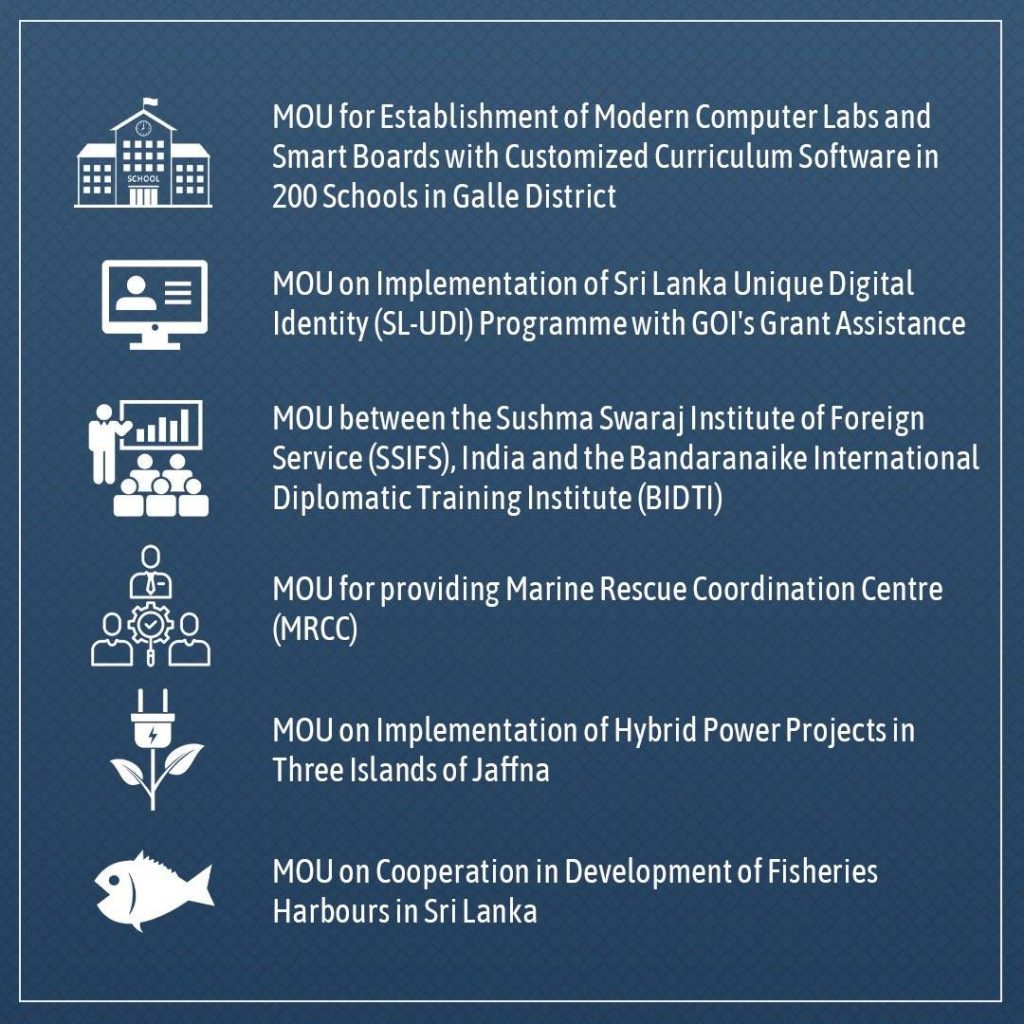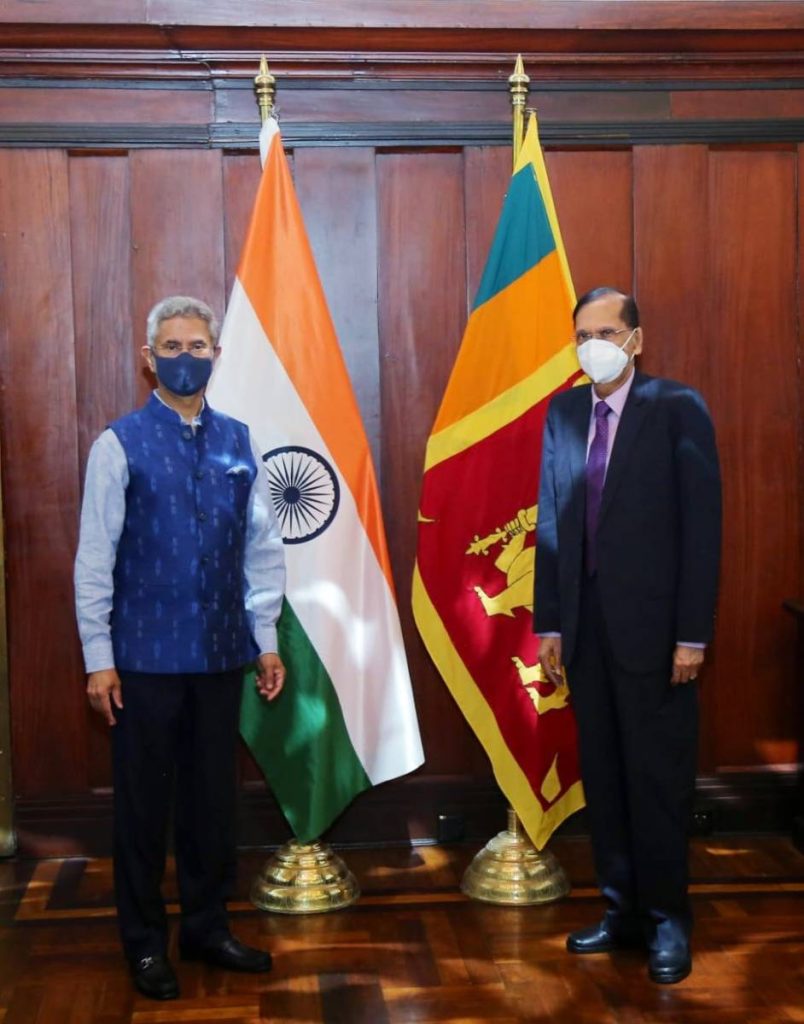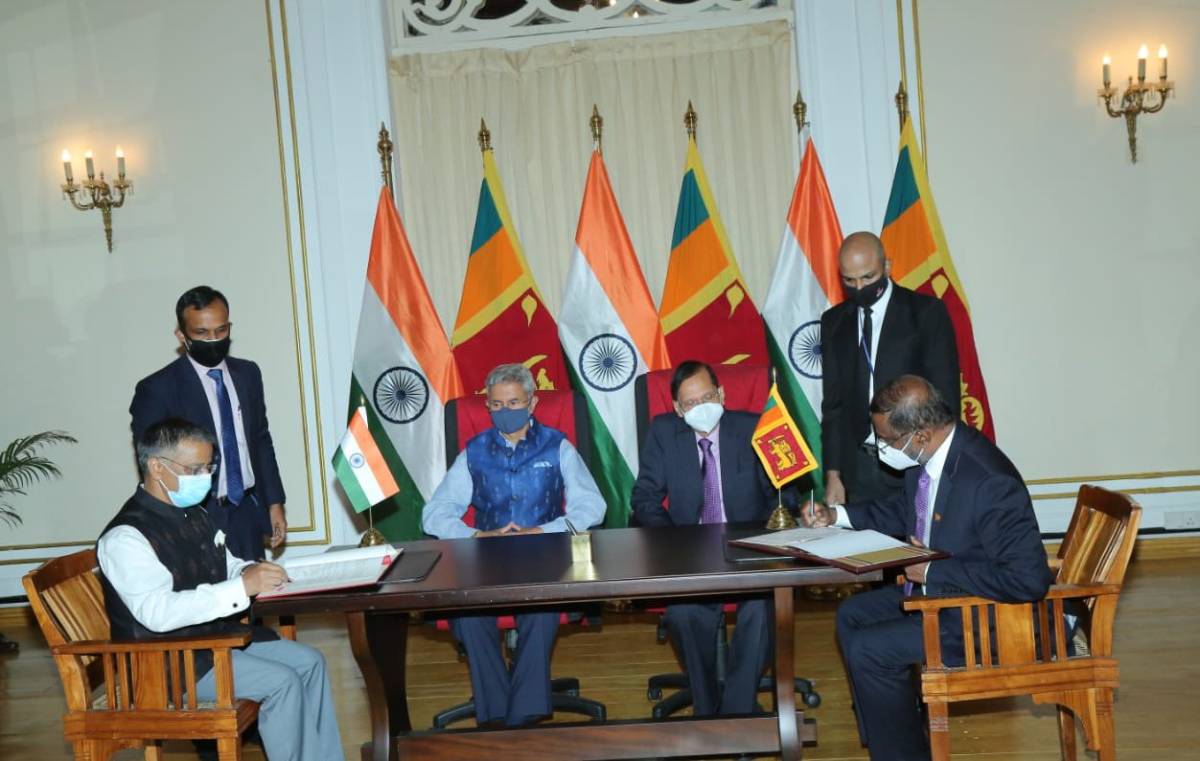A separate MoU was signed to implement the Sri Lanka Unique Digital Identity (SL-UDI) programme on a grant of Rs 30 crore….reports Asian Lite News
Tightening the defence, economic, education, religious and cultural ties, multiple agreements were inked on the first day of Indian External Affairs Minister S. Jaishankar’s visit to Sri Lanka.
Meeting the three Rajapaksa brothers — President Gotabaya, Prime Minister Mahinda and Finance Minister Basil, as well as and Forign Minister G. L. Peiris, Jaishankar signed six MoUs that are vital for the two countries and future cooperation.
On the security front, an MoU was signed to establish a Maritime Rescue Coordination Centre (MRCC) with a grant of $6 million from India.
Built by the Indian government-owned aerospace and defence electronics company, Bharath Electronics, with the project India is to provide three Dornier maritime surveillance aircraft to Sri Lanka and a 4,000 MT floating barge to Sri Lanka Navy.

The MRCC is to be set up inside the Sri Lanka Navy Headquarters and seven other sub-units are to be positioned around the country including one in Southern city of Hambantota, where the China-run harbour is located.
A separate MoU was signed to implement the Sri Lanka Unique Digital Identity (SL-UDI) programme on a grant of Rs 30 crore.
However both the projects were criticised by Sri Lanka’s opposition and activists claiming that the government was selling the country’s national resources at a cost of national security.
They claimed that through the MRCC, the entire airspace is sold to India under the guise of a security system and positioning of even sub-units in naval bases covering entire Indian ocean around Sri Lanka is calling for a geopolitical war with China.
The Opposition also alleged that with the SL-UDI project the entire digital identities of all Sri Lankans, including the biometrics, will be in the hands of India.
Another MoU was signed to implement Hybrid Power Projects in three Islands off Jaffna where earlier proposed Chinese project was cancelled following objection by India. India has objected to have Chinese presence in the Sri Lankan islands closer to Rameswaram on the Tamil Nadu coastline.

Among the other MoUs signed were for the development of fisheries harbours in Sri Lanka; a project to establish modern computer labs and smart boards with customised curriculum software in 200 schools in Galle district; and one between Sushma Swaraj Institute of Foreign Service and the Bandaranaike International Diplomatic Training Institute.
President Gotabaya Rajapaksa has thanked India for recent economic assistance amounting to around $2.5 billion extended to Sri Lanka and Jaishankar assured New Delhi’s continued support in Colombo’s economic recovery process, the Indian High Commission in the island nation announced.
An MoU was also signed in the presence of Prime Minister Mahinda Rajapaksa to give a $15 million for the maintenance of important Buddhist sites in Sri Lanka.
Jaishankar virtually inaugurated the-state-of-the-art theatre in Jaffna Cultural Centre constructed with India’s grant assistance aimed at expanding cultural infrastructure for people of Northern Province.
Consisting of a museum of two floors; an advanced theatre style auditorium for more than 600 people; a 11-storeyed learning tower and a public square which could also act as an amphitheatre, the Cultural Centre is a glowing example of India-Sri Lanka development partnership, the High Commission stated.
Accompanied by a five-member official delegation from Ministry of External Affairs, Jaishankar arrived in Sri Lanka following a two-day trip to the Maldives.

